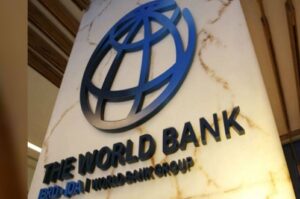World Bank Disburses $1.5 Billion to Nigeria for Subsidy Removal and Tax Reforms
World Bank Disburses $1.5 Billion to Nigeria for Subsidy Removal and Tax Reforms

Nigeria has successfully secured a $1.5 billion loan from the World Bank, following the implementation of key reforms by the Federal Government, including the removal of fuel subsidies and the introduction of comprehensive tax policies.
The loan, part of the Reforms for Economic Stabilisation to Enable Transformation Development Policy Financing initiative, is one of the fastest disbursements ever made to Nigeria, with both tranches being released within six months.
According to World Bank documents obtained by The PUNCH, the loan was approved on June 13, 2024, with the first tranche of $750 million disbursed on July 2, 2024. The second tranche, which was contingent upon the fulfillment of specific economic reform conditions, was released in November 2024.
This rapid disbursement stands in contrast to many other loan programs, which often face delays due to slow or incomplete implementation of reform conditions.
In addition, the World Bank approved another loan of $750 million on June 13, 2024, for the Accelerating Resource Mobilisation Reforms Programme for Results project in Nigeria. However, as of the latest updates, only about $1.88 million has been disbursed for this initiative, accounting for less than 1% of the approved amount.
The $1.5 billion loan to Nigeria was structured in two tranches with different maturity periods. The World Bank has praised Nigeria’s swift actions, highlighting the country’s strong commitment to economic transformation. The global lender acknowledged the government’s efforts in addressing structural issues, such as the fiscal burden of subsidies and challenges with revenue mobilization, and emphasized the need for sustained reforms.
Despite concerns over rising external debt and the growing debt service burden, the administration of President Bola Tinubu has secured significant loans, including a $6.95 billion package from the World Bank over the past 18 months.
Looking ahead, the World Bank is expected to make decisions on three major loan projects for Nigeria in 2025, totaling $1.65 billion. These loans will target critical issues such as internally displaced persons, education, and nutrition improvement.
Data from Nigeria’s Debt Management Office reveals that the World Bank holds a significant portion of the country’s external debt, with $16.32 billion owed to the International Development Association, which constitutes 38% of Nigeria’s total external debt. The International Bank for Reconstruction and Development, another arm of the World Bank, is owed $484 million, or 1.1
3% of the total.
TRENDING SONGS
 NPMA Appeals to Nigerian Government for Compensation After Lagos Market Fire
NPMA Appeals to Nigerian Government for Compensation After Lagos Market Fire
 Rest Every Four Hours, FRSC Issues Safety Guide for Fasting Motorists
Rest Every Four Hours, FRSC Issues Safety Guide for Fasting Motorists
 NNPC Boss Ojulari Bags UK Energy Institute Fellowship
NNPC Boss Ojulari Bags UK Energy Institute Fellowship
 Shock in Anambra: Bride Disappears Moments Before Wedding
Shock in Anambra: Bride Disappears Moments Before Wedding
 Nigerian Woman Returns ₦330 Million Accidentally Credited to Her Account
Nigerian Woman Returns ₦330 Million Accidentally Credited to Her Account
 APC Don Reach Morocco?’ VeryDarkMan Reacts to Seyi Tinubu Poster
APC Don Reach Morocco?’ VeryDarkMan Reacts to Seyi Tinubu Poster
 Bride Breaks Down in Tears as Wedding Meals Were Kept Secretly While Guests Go Home Hungry
Bride Breaks Down in Tears as Wedding Meals Were Kept Secretly While Guests Go Home Hungry
 Odogwu by Day, Robber by Night: How Marriage Joy Turned Into Tragedy
Odogwu by Day, Robber by Night: How Marriage Joy Turned Into Tragedy
 Nigerian Officials Allegedly Pocket N4–6B Weekly Through Smuggling Cartels at Seme–Badagry Border
Nigerian Officials Allegedly Pocket N4–6B Weekly Through Smuggling Cartels at Seme–Badagry Border
 Ahmad Yerima: Naval Officer to Face No Sanctions After Clash with Wike – Matawalle
Ahmad Yerima: Naval Officer to Face No Sanctions After Clash with Wike – Matawalle
Share this post with your friends on ![]()













